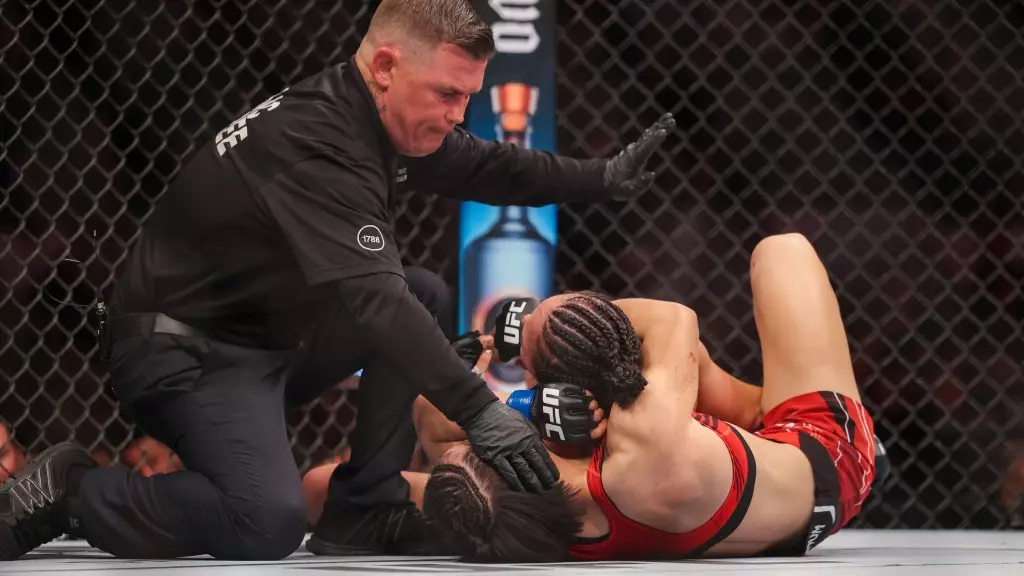The world of Mixed Martial Arts (MMA) is not only characterized by the brutal and captivating fights within the octagon, but it also thrives on intense rivalries outside of it. One such notable friction is the contentious relationship between former UFC bantamweight champion Dominick Cruz and referee Keith Peterson. Since the pivotal bout at UFC 249, where Peterson called a controversial stop to Cruz’s title fight against Henry Cejudo in the second round, the resentment has festered, painting a portrait of a rivalry rooted in dispute and dissatisfaction.
Cruz’s record, standing at an impressive 24 wins, 4 losses (7-3 in UFC bouts), should have solidified his legacy within the sport. However, the abrupt manner in which Peterson halted the bout has led to a chorus of vocal criticism from Cruz. This dissatisfaction is not merely a fleeting sentiment; Cruz has actively demanded that Peterson not officiate any of his future fights. This call for action reveals the depths of his frustration and suggests a belief that his prowess as a fighter could be undermined by poor officiating.
In a memorable segment of the “Good Guy / Bad Guy” podcast, the infamous name association game highlighted Cruz’s fiery attitude when Peterson’s name was brought up. His immediate response—“All nonsense”—summed up his sentiments succinctly. This reaction not only showcases Cruz’s vocal displeasure but also hints at the broader implications of how officiating can affect a fighter’s career trajectory. Cruz lamented, “If we went and we had to critique each ref’s performance the way we get critiqued, that guy would have been fired months ago.” Such statements underline a critical concern within the sport: the inconsistency and quality of officiating can have far-reaching consequences on the athletes involved.
Cruz did not stop at mere words. His allegations regarding Peterson smelling of alcohol and cigarettes during UFC 249 have added an unsettling layer to the narrative. It raises pressing questions about the standards to which referees are held, particularly when their perceived unprofessionalism could potentially influence the outcomes of high-stakes matches.
In a sport that thrives on exemplary performance, whether it be fighters or officials, Cruz advocates for a notable reform in the vetting process for referees. “There needs to be some sort of filter for refs and stuff, you know?” he suggested, indicating a desire for improved standards of officiating akin to those imposed on fighters. His plea resonates with fans and fighters alike who desire a transparent and accountable officiating system—one where quality can be assured.
With Cruz’s return to the octagon scheduled for UFC Fight Night 252 against Rob Font, anticipation grows. He has stated that this matchup will mark the conclusion of his illustrious career. It’s ironic that as Cruz prepares to leave the sport, he remains embroiled in a battle not just within the cage but against the officiating that he deems subpar. For Cruz, his fight against Peterson may not just be a matter of personal grievance; it serves as a rallying cry for improved standards in a sport that holds its competitors to an incredibly high bar.

